First published in Great Britain in 2012
By Wharncliffe Books
an imprint of
Pen and Sword Books Ltd
47 Church Street
Barnsley
South Yorkshire S70 2AS
Copyright Maurice Crow and Juliet Morris, 2012
ISBN 978 1 84563 149 9
The right of Maurice Crow and Juliet Morris to be identified as the authors of this work has been asserted by them in accordance with the Copyright, Designs and Patents Act 1988.
A CIP record for this book is available from the British Library
All rights reserved. No part of this book may be reproduced or transmitted in any formor by any means, electronic or mechanical including photocopying, recording or by any information storage and retrieval system, without permission from the Publisher in writing.
Printed and bound in England
by CPI Group (UK) Ltd,
Croydon, CR0 4YY
Typeset in Helvetica Light by
Chic Media Ltd
Pen & Sword Books Ltd incorporates the imprints of Pen & Sword Aviation, Pen & Sword Family History, Pen & Sword Maritime, Pen & Sword Military, Pen & Sword Discovery, Wharncliffe Local History, Wharncliffe True Crime, Wharncliffe Transport, Pen & Sword Select, Pen & Sword Military Classics, Leo Cooper, Remember When, The Praetorian Press, Seaforth Publishing and Frontline Publishing
For a complete list of Pen and Sword titles please contact
Pen and Sword Books Limited
47 Church Street, Barnsley, South Yorkshire, S70 2AS, England
E-mail:
Website: www.pen-and-sword.co.uk
CHAPTER
The Early Years
 At the Opening Ceremony of each Olympic Games one athlete, chosen to represent all competitors, takes the following oath: In the name of all the competitors I promise that we shall take part in these Olympic Games, respecting and abiding by the rules which govern them, in the true spirit of sportsmanship, for the glory of sport and the honour of our teams.
At the Opening Ceremony of each Olympic Games one athlete, chosen to represent all competitors, takes the following oath: In the name of all the competitors I promise that we shall take part in these Olympic Games, respecting and abiding by the rules which govern them, in the true spirit of sportsmanship, for the glory of sport and the honour of our teams.
The Olympic Oath was first voiced publicly in 1920 but the ideals it espouses go back almost 3,000 years. According to legend, the ancient Games were founded by Heracles (known to the Romans as Hercules), a son of Zeus. The Olympian Games were the most famous of the four ancient Games the others being the Isthmian, Pythian and Nemean and were named after the location in which they were held: Olympia in south-west Greece, Zeuss most important shrine. Archaeologists have demonstrated that the Olympics date back to the second millennium before Christ, but the very first gathering for which there are written records was in 776 BC.
In that year a naked runner, Koroibus, won the main event, known as the stade, a run of approximately 192 metres (210 yards). This made Koroibus, a humble local baker from Elis, the very first Olympic champion in history. Other early victors included a cowherd and a goatherd. Their prize was an olive wreath. In those days the Games were strictly for men, who competed naked or wearing only a thong. For this reason, women were banned, even as spectators although teenage girls were later allowed to compete in separate, limited races, wearing short tunics with their right breasts exposed.
We know that from at least 776BC the Games were held every Olympiad, a four-year period used in the Greek calendar. During the spring of the chosen year messengers were despatched to all the principal city-states urging them to send their finest athletes. They could be rich or poor but had to be of Greek descent and classed as men of honour. Those who returned successful with a prize of an olive wreath could expect to be feted for the rest of their days, eulogised by poets and offered an allowance from state coffers. The most successful Olympian of these times was Milo of Croton, an associate of Pythagoras, who won five mens wrestling titles between 536 and 520BC.
The ancient Olympian Games grew and continued to be played for more than 1,000 years. During the first 300 centuries of its recorded history, the events were contained within a single day. In 472BC it was expanded into a five-day event beginning with a full day of sacrificial worship to Zeus. The programme of events included boxing, wrestling and a fighting discipline called the pancratium. Boxing was challenging enough, the pugilists progressing from gloves of soft leather strips to ones of tough hide weighted with lead. The pancratium was still more demanding, the fight ending only when one battered contender accepted humiliating defeat.
Sprinting events were considered the most prestigious but some other contests required a degree of wealth on the part of competitors. One test involved racing in full body armour. In the equestrian events the contenders had to provide their own horses. There was also a pentathlon, comprised of sprinting, wrestling, long jump, javelin-throwing and discus-hurling. The discus was oval-shaped and made of bronze, while the standard javelin technique involved a strap wound around the shaft that was ripped downwards at the moment of delivery to give greater distance and accuracy.
The pagan aspects of the ancient Games were its downfall. Roman emperors, having adopted Christianity, began to look with disfavour upon Greeks worshiping their gods of old. Theodosius I, the last of his kind to rule over a united east-west Roman Empire, finally banned all forms of pagan worship in 391AD. Three years later he abolished the Games.
The sporting ideals that had flourished in Ancient Greece died and remained moribund for more than a millennium, through the Dark Ages and the Mediaeval Period. It was not until the early nineteenth century that European aristocrats, schooled in the classics and enticed by the Greek ethos of mind and body in harmony, were drawn to pastimes such as fencing and tennis. A sporting renaissance spread from the nobility to the new middle classes.
A restoration of Olympian athleticism needed only a catalyst and that came from one man. The father of the modern Olympic Games, Baron Pierre de Coubertin, was born in Paris on 1 January 1863, a member of an old aristocratic French family. From his teen years he was fascinated by classical Greek architecture and ideology. He read how, 100 years earlier, British scientist Richard Chandler had discovered the location of ancient Olympia. And when, between 1875 and 1881, German archaeologist Ernst Curtius uncovered the actual remains of Olympia in the Greek Peloponesse, De Courbetin was enthralled. Curtius himself suggested reviving the Games there but Greece already played host to the popular Pan-Hellenic Games, launched in 1859.
De Coubertin switched the emphasis. Lauding the noble and chivalrous character of physical exercise, he saw the global scope of the new Games and set about devising an international sporting event expressed by means of fair competition between nations with equal opportunity for all contestants. The amateur ideal was a prerequisite and the notion of athletes reaping commercial rewards for their achievements was anathema to him.
As he later declared: I shall burnish a flabby and cramped youth, its body and its character, by sport, its risks, even its excesses. All this is to be for everyone, with no discrimination on account of birth, caste, financial standing or occupation.
De Courbetin penned articles, lobbied the authorities and held numerous public meetings with the stated aim of re-establishing the Olympic Games to ennoble and strengthen sports and to assure their independence and durability and, moreover, to allow them better to fulfil an educational role which was their duty in the modern world. This, he later wrote, would be for the glorification of the individual athlete, whose existence is necessary for the physical activities of the multitude, and whose prowess is essential to continuing general emulation.
Next page
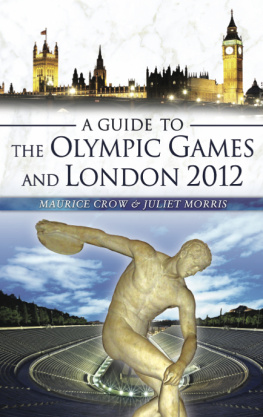

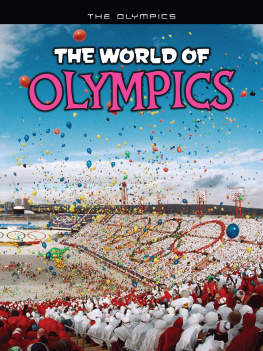
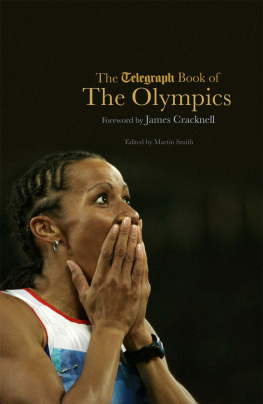
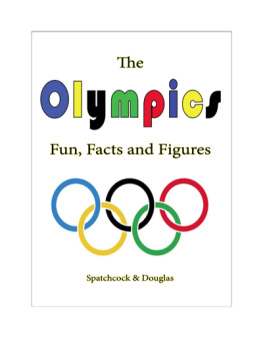
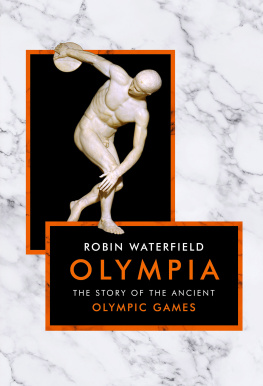

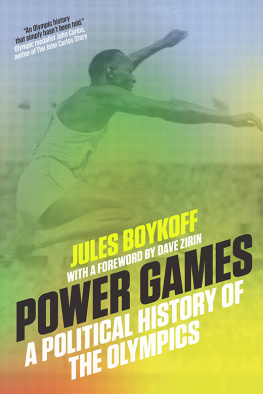
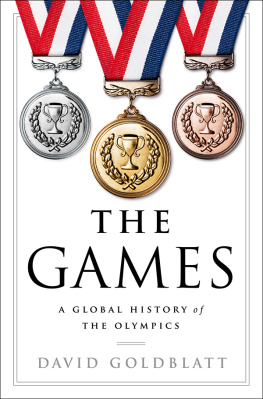
 At the Opening Ceremony of each Olympic Games one athlete, chosen to represent all competitors, takes the following oath: In the name of all the competitors I promise that we shall take part in these Olympic Games, respecting and abiding by the rules which govern them, in the true spirit of sportsmanship, for the glory of sport and the honour of our teams.
At the Opening Ceremony of each Olympic Games one athlete, chosen to represent all competitors, takes the following oath: In the name of all the competitors I promise that we shall take part in these Olympic Games, respecting and abiding by the rules which govern them, in the true spirit of sportsmanship, for the glory of sport and the honour of our teams.